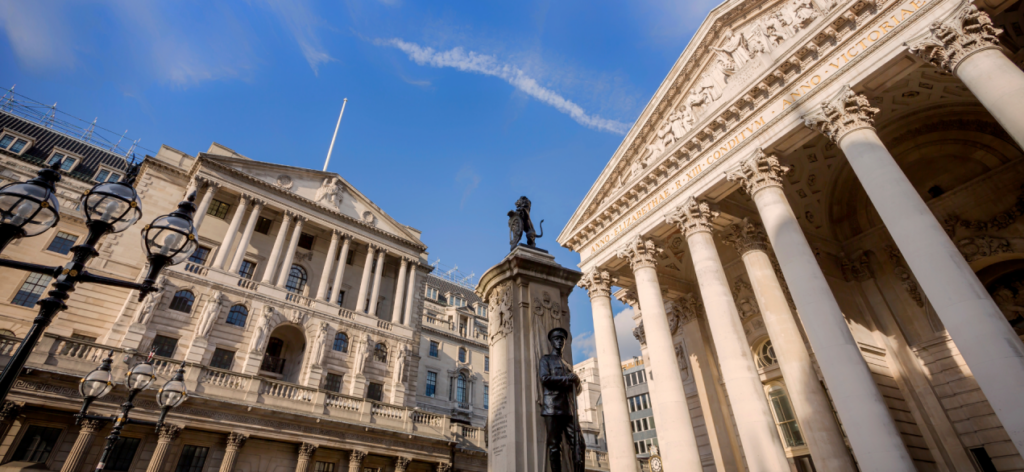Harvey John
Unit 2 Ferry Wharf
Hove Enterprise Centre
Basin Road North
Portslade, East Sussex
BN41 1BD
Part 8 of a blog series on the rise of cryptocurrencies.
With the value of bitcoin still surging and signs that some big players are coming on board, there has been much debate on whether treasury departments will start embracing cryptocurrencies.
Charles Barling, an Independent Treasury Professional with over 20 years of direct operational treasury experience across multiple spheres, is fascinated by Bitcoin, but he is sceptical about whether it is the right choice for treasury.
In this Q&A Charles answers our questions about Bitcoin from a treasury perspective
If bitcoin continues its upward trajectory, might treasury departments have some regret on a missed opportunity?
From a corporate treasurer’s perspective, they could be looking at this from a couple of angles depending on whether they are a profit centre or a cost centre.
There will be likely very few that will have a mandate from their boards to be looking at this as the former. Most will be operating with a mandate that deals with the management of excess cash. When viewing from this angle the basic principles in relation to cash management apply:
- Yield
- Liquidity
- Security
When looking at the management of excess liquidity, treasurers will tend to rank these depending on their risk management objectives. But as far as Bitcoin is concerned, it is not a tool that would fit comfortably with any of these criteria.
If you were to consider the well-documented analogy of Bitcoin being the new digital gold, it is well-understood that you do not invest in gold for potential yield returns. Investing in gold has long been held out as the tool that allows you to hedge against inflation. However, I believe there is much evidence that has been presented to suggest that this is just not effective in the way that many believe.
Bitcoin within the current environment (marketplace) is not particularly liquid, if at all. Most who tend to trade and invest in bitcoin do so by way of ‘unregulated’ exchanges and it is a deeply held view by many opponents of bitcoin that these exchanges have been dens for illegal wash trading and money laundering activities. Not being regulated to the standard that most institutions tend to be, allows them to be extremely opaque, with little effective scrutiny.
There is just no transparency that allows you to be sure that much of the market trading volume, that has resulted in Bitcoin reaching the giddy heights, has been achieved legitimately via effective market forces.
Additionally, these exchanges are effectively the only ‘on-ramp’ and ‘off-ramps’ for converting fiat money into and out of bitcoin. As such it makes it very difficult for the average Bitcoin punter to be sure he will get reliable service when he needs it.
There has been much comment about the lack of convertibility and until some increased form of transparency and additional regulation can be applied, I do not expect this situation to change much. It will be interesting however to see how companies like PayPal who are now going to be offering bitcoin settlement for their merchant services might contribute to developments in this area. It is not a particularly structured way for the market to operate in my view
Is Bitcoin secure? I think the above comments suggest that there is a huge question in this area, particularly with all the instances of Bitcoin being lost or stolen from accounts on exchanges. Safe storage is a real headache for most. There’s the saying, ‘Not your private keys? Not your bitcoin’.
As the FCA has rightly pointed out on a number of occasions, you are at risk of losing your money because there are just not the same protections afforded as would be in well-regulated markets.
In an interview from a few years ago, you posed the question, “What is it that a blockchain provides that cannot be achieved via a traditional database with some form of central authority to run it?” Do you see the lack of central authority as a red line?
That’s a great question. Bitcoin has certainly challenged the thinking on such things. However, developments tend to suggest that while the underlying theory might suggest this possible, it may not actually be desirable. With the prospects for regulation, albeit indirect, already impacting those who want to operate in the space, it would be difficult to argue that mainstream adoption, while persisting with a lack of central authority, are actually compatible concepts.
As such it seems inevitable that, as we head down the route of central bank digital currencies, alternatives to fiat currencies may survive and indeed flourish, but they will have limited capacity to provide the true alternative to fiat that was envisioned back in 2009.
Indeed, events have already consumed Bitcoin and the argument is now focused on whether it is money or that store of value that people are hoping it to be.
You also noted that the Bank of England’s reservation on blockchain is that the technology is not being sufficiently mature enough to contemplate replacing its RTGS (real-time gross settlement system). At what point do you think the technology would be recognised by institutions such as the BoE?
It is perhaps too early to say. Central banks will have their own focus and there are very many questions already about what digital money needs to look like in the long term and whether it can be/should be anonymous, as is currently the case for cash!
They already recognise there may be legitimate reasons to transact anonymously with cash and are still grappling with such issues, with little suggestion they are close to presenting a draft policy on such matters.
In your experience working in treasury, would you say, in general, that the sector is resistant to change and is conservative in nature?
I can perhaps speak only from my own preferences and observations. But having predominately worked with large or listed corporates, it is not about resistance to change, but more about the risks that are in front of them that have to be managed. Corporates with a large amount of cash to manage will likely be required to take a very different view to a corporation that is tightly managing cash within its working capital cycle.
What will treasury departments look like in 5 years time?
I think the treasury of tomorrow will be a bit more tech-savvy than they are even today. With the corporate risk management remit still sitting with the treasury, treasurers will need to better understand the technologies they are being asked to work with especially when it comes to cybersecurity, computing and distributed ledger technologies.
Banks will perhaps become less of an advising intermediary and treasurers will required to make more independent judgements that rely on their own knowledge base.
Away from work, if you personally had some money to invest, would you consider buying Bitcoin?
I have been looking at bitcoin for 6 or 7 years. I thought that in order to write anything about how it works I should see how easy it would be to buy some. Taking everything into consideration, it took a couple of years before I gained the confidence to do so.
With a traditional and conservative approach, it has certainly taken a while and while I might actually hold a bit of bitcoin, I can’t treat it as an investment. I treated it more like an accumulator bet on which I might lose all my money on the last race! I am certainly not holding my breath.
Now it’s just a bit of fun while the race is still on!
—
The rise of cryptocurrency series
1 – The mysterious birth of bitcoin
2 – Bitcoin – A beginners guide
4. Will the volatility ever end?
5. Can block chain technology make elections foolproof?
6. Bitcoin and the Elon Musk effect
7. Is Bitcoin killing the planet?
Guy Middleton is a Treasury Associate Director at Harvey John.
Author

He is able to provide support at all levels of seniority, from graduates with treasury exposure to seasoned Group Treasurers, in both the permanent and interim markets, and has established a reputation for carefully matching both client and candidate requirements.






